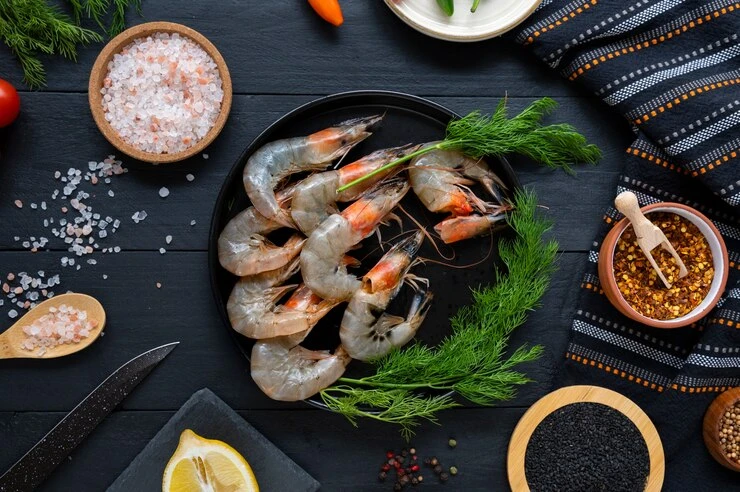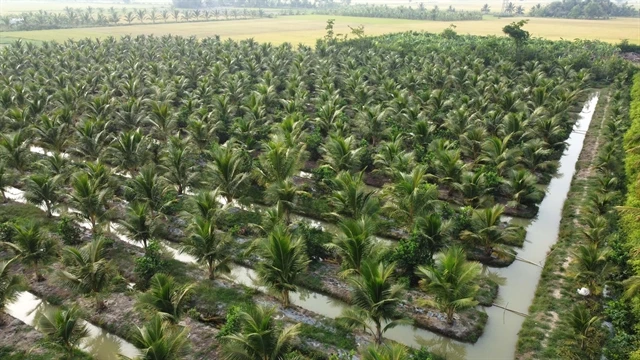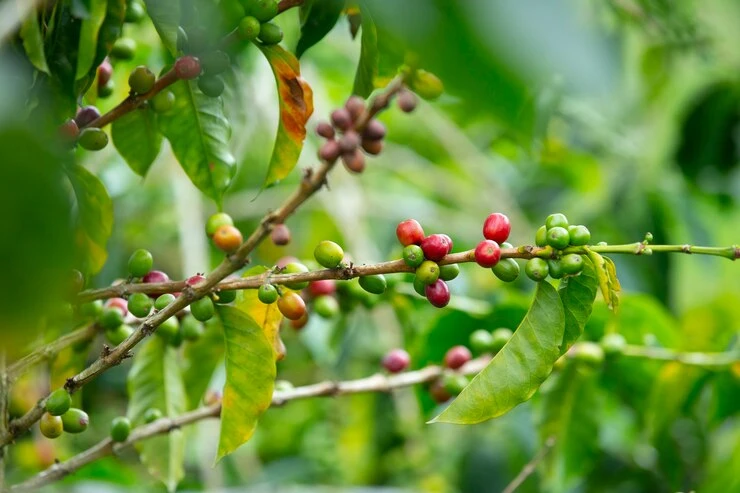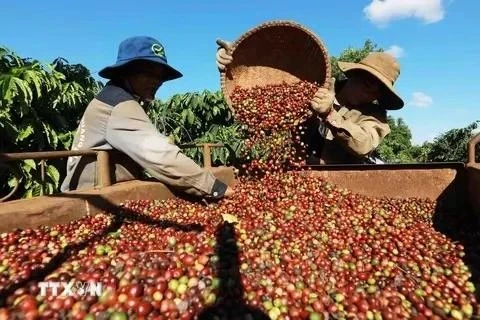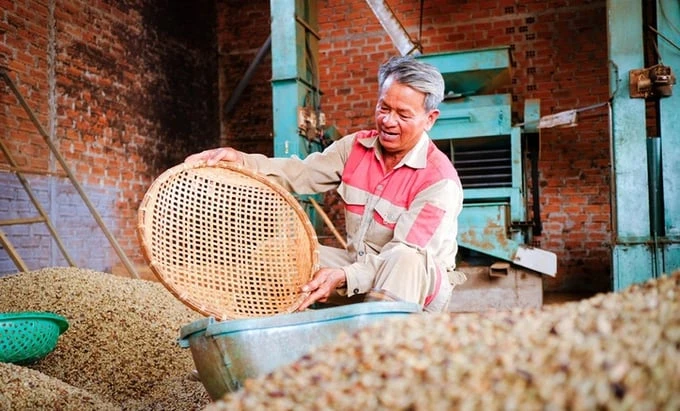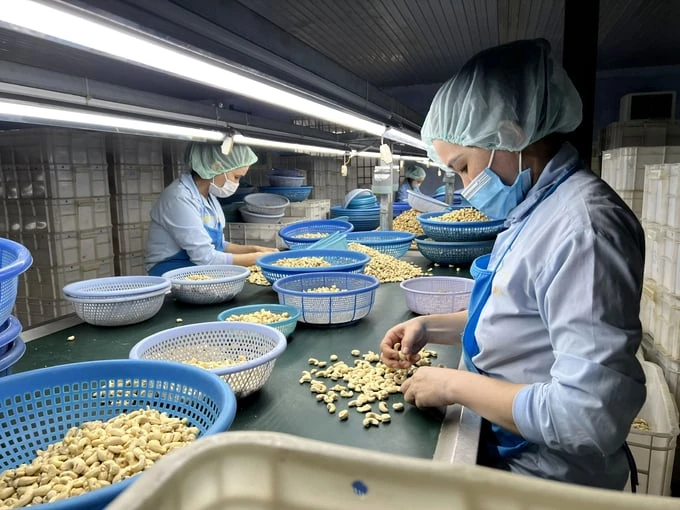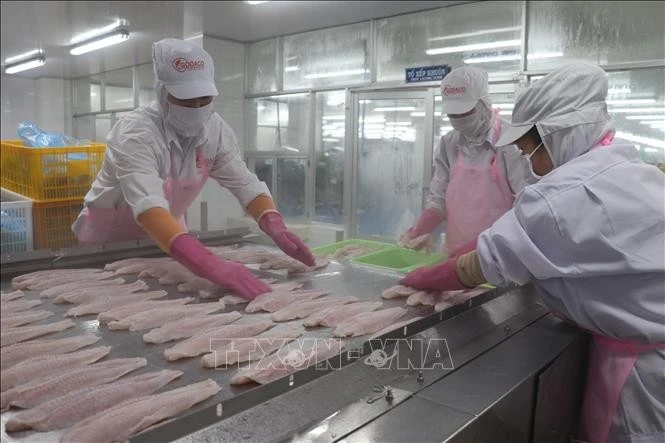(seafood.vasep.com.vn) As Vietnam’s southernmost province, Ca Mau boasts abundant natural resources, particularly in fisheries and renewable energy, attracting significant international investment. The presence of international businesses in Ca Mau plays a pivotal role in driving economic growth and sustainable development, not only for the province but also for the entire Mekong Delta region.
Key sectors attracting international businesses
Cà Mau is renowned for its abundant seafood resources, which have become one of the province's key export sectors, accounting for a significant portion of its annual export revenue. International businesses, especially from Japan, South Korea, the United States, and the European Union, have made substantial investments in aquaculture, seafood processing, and export operations in the province.
Several large corporations such as Minh Phu and Fimex VN have forged partnerships with international counterparts to expand export markets and enhance product quality. Investments in advanced processing technologies from developed countries have helped increase the added value of products, creating jobs for local residents and contributing to economic growth.
Beyond fisheries, Ca Mau also possesses immense potential in renewable energy, particularly wind and solar power. International businesses are increasingly investing in these sectors to capitalize on the region's natural advantages. These projects offer a double benefit to Ca Mau, generating employment opportunities for locals and stimulating infrastructure development. This also strengthens the province's ability to integrate into the global economy, positioning Cà Mau as a rising hub for renewable energy in the region.
Alongside the growth of various industries, Ca Mau's infrastructure and logistics systems are also being improved through investments from international enterprises. With rapid economic growth and increasing export demands, upgrading transportation and port infrastructure is essential to meet global market requirements.
Several major infrastructure projects in Cà Mau have attracted investments from international organizations. Companies from Japan, South Korea, and European countries have participated in upgrading ports and roads, improving goods circulation. This not only facilitates domestic businesses but also positions the province as a crucial link in the global supply chain.
Recently, the Ca Mau People's Committee, in collaboration with the Chinese Consulate General in Ho Chi Minh City, successfully organized a meeting between Ca Mau enterprises and Chinese ones. The event connected 54 businesses, including 30 seafood processing exporters, 15 potential exporting OCOP (One Commune One Product) businesses, and several businesses in the tourism, transportation, construction, and energy sectors of the province with Chinese counterparts. This created opportunities for businesses from both sides to interact, exchange, discuss important issues in business cooperation, learn from each other's experiences, and seek development opportunities.
Challenges and opportunities for the future
Despite significant success in attracting foreign investment, Cà Mau Province still faces several challenges that need to be addressed to maintain and sustainably develop international business activities. One of the key issues is that the technical infrastructure in certain areas has not yet met the development needs of businesses, particularly in high-tech and renewable energy sectors.
Environmental concerns also pose a significant challenge. The rapid expansion of industries, particularly aquaculture, can have negative environmental impacts if not properly managed. International businesses, with their high environmental standards, can assist local authorities in addressing this issue by adopting clean and sustainable production technologies.
The Ca Mau People's Committee has recently planned to organize a visit for international businesses in 2024 for market exploration and trade connectivity. According to the People's Committee, this visit presents an opportunity for the province to promote its image, people, and development potential to domestic and foreign individuals, organizations, businesses, importers and investors. It also aims to strengthen trade connections and high-tech agricultural cooperation. Additionally, this event will provide a platform for local businesses to meet partners, seek business opportunities, expand into new markets, and promote exports of the province's key products such as seafood, rice, and processed foods.
On November 15th, the People's Committee will organize a tour for domestic and foreign organizations and businesses to visit seafood processing plants, facilities producing OCOP products and local specialties. This will facilitate exchanges and a deeper understanding of the needs, potential, strengths, and necessary conditions for cooperation. The local authorities will actively arrange and guide the business delegation to visit suitable locations based on their purchasing needs and connect them with seafood processing and export enterprises in the province.
On this occasion, the People's Committee will also organize a Trade fair to promote local products at the provincial convention center, with the participation of 300 delegates, including consuls general from various countries in Ho Chi Minh City, chambers of commerce and industry, trade offices in Vietnam, Vietnamese trade offices abroad, the Import-Export Department of the Ministry of Industry and Trade, as well as domestic and international businesses and partners. Additionally, 50 booths will be set up to showcase the province's specialties to domestic and foreign buyers.
Beyond exported shrimp and crab, the province also has clean rice and organic rice cultivation areas, as well as over 100 OCOP products rated three stars or higher, which are being strongly consumed in the domestic market and some have been exported through informal channels. This is a significant advantage for this potential-rich locality to accelerate trade promotion activities and expand overseas markets for the province's key products, especially seafood, organic rice, and processed foods,...
